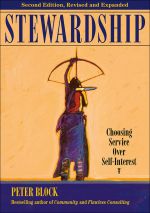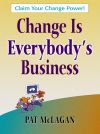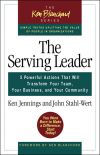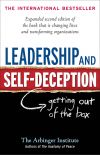Правообладателям!
Представленный фрагмент книги размещен по согласованию с распространителем легального контента ООО "ЛитРес" (не более 20% исходного текста). Если вы считаете, что размещение материала нарушает ваши или чьи-либо права, то сообщите нам об этом.Читателям!
Оплатили, но не знаете что делать дальше?
Текст бизнес-книги "Stewardship. Choosing Service Over Self-Interest"
Автор книги: Peter Block
Раздел: Зарубежная деловая литература, Бизнес-книги
Возрастные ограничения: +12
Текущая страница: 2 (всего у книги 2 страниц)
Service
The underlying value is about deepening our commitment to service. We have the language of service. We serve our country; we call ourselves a service economy; we choose public service as a profession; we have committed to serve customers. What is missing is the experience of service. Our experience is too often to find ourselves surrounded by self-interest, especially inside our institutions. The ways we govern, manage, and lead are a testimony to self-interest. Authentic service is experienced when these conditions exist:
• There is a balance of power. People need to act on their own choices. Acts of compliance do not serve those around us or the larger organization. Dominance also fails. We do a disservice to others when we make decisions for them. Even if we are right.
• The primary commitment is to the larger community. Focusing constant attention on the individual or a small team breeds self-centeredness and entitlement.
• Each person joins in defining purpose and deciding what kind of culture this organization will become. We diminish others when we define purpose and meaning for them, even if they ask us to do so.
• There is a balanced and equitable distribution of rewards. Every level of an organization shares in creating its wealth and expanding its resources. When an organization succeeds in its marketplace, money and privilege need to be more evenly distributed among levels if our commitment to service is to have any integrity.
Without these elements, no genuine service is performed.
These notions of service and stewardship, however, are not the basis of how we currently run our organizations. They do reflect some of our intentions about how to govern, but not the reality.
Some of the elements are often in place. We frequently see innovative pay systems, self-managing teams, total quality efforts, partnerships, customer attentiveness, and inverted pyramids. They are rarely, however, put together in a pervasive governance strategy. As a result, we end up too often working against ourselves. We share control with the left hand and take it back with the right. One moment we are on the fast track toward participation, and the next moment we are instituting more controls. The new technology makes it even easier to control workers. We can electronically track their movements, their work patterns, who they are communicating with, how much they are working even when they are out of sight. Supervision has almost turned into surveillance.
The intent of this book is to translate these ideas about power, community, purpose, and privilege into a whole strategy for governing our companies and institutions. Stewardship then becomes a governance strategy. It is the search for the means of experiencing partnership and empowerment and service. This book offers a guide map for this search. Discovering how to govern, to ensure the well-being and survival of our organizations, is how we create meaning in what we do. This is the spiritual stream we stand in.
Stewardship encompasses concerns of the spirit, but it also must pass the test of the marketplace. It must be practical and economical. It must be low cost and good for customers and communities as well as employees. Our organizations constantly stand on this intersection of spirit, community, and the marketplace. The unique intention of this book is to offer the means by which there can be a reconciliation of what is good for the soul, good for a customer, and good for the health of the larger institution.
This book, then, is for those of us living questions of purpose and survival. It is not written from the point of view of consultants, experts in managing change, and experienced practitioners worried about changing others. The book takes the viewpoint of core workers, staff people, supervisors, managers, and executives. It is for frontline workers and people in a support role. People who are in the middle of it all. It is for activists in school reform, health care, and government under fire, as well as businesses in the private sector. It is for people who have decided that their organization needs reforming and have doubts about whether what they are doing now is enough.
Внимание! Это ознакомительный фрагмент книги.
Если начало книги вам понравилось, то полную версию можно приобрести у нашего партнёра - распространителя легального контента ООО "ЛитРес".Правообладателям!
Представленный фрагмент книги размещен по согласованию с распространителем легального контента ООО "ЛитРес" (не более 20% исходного текста). Если вы считаете, что размещение материала нарушает ваши или чьи-либо права, то сообщите нам об этом.Читателям!
Оплатили, но не знаете что делать дальше?![Книга Search Inside Yourself: Increase Productivity, Creativity and Happiness [ePub edition] автора Jennie Miller](http://biznes-knigi.com/books_files/covers/thumbs_100/search-inside-yourself-increase-productivity-creativity-and-happiness-epub-edition-11788.jpg)







